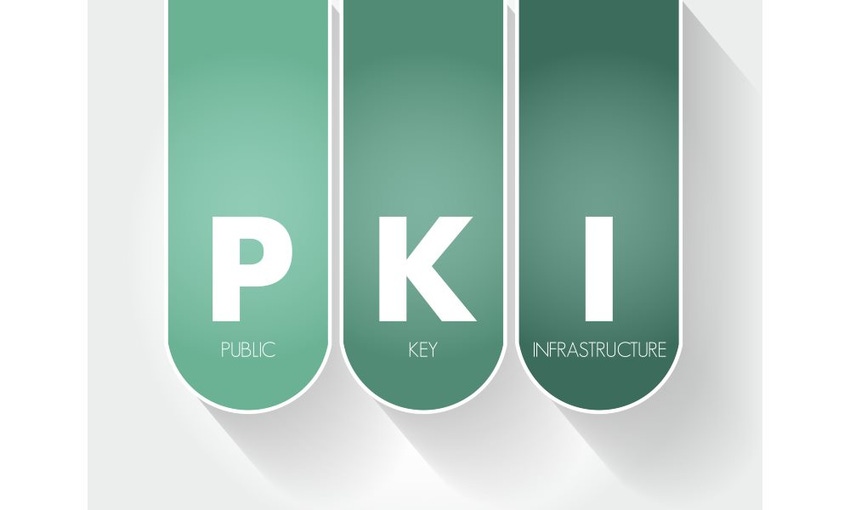As remote work trend remains strong, PKI solutions can help keep companies secure.
July 1, 2020

By Henry Krumins
 If you haven’t considered adding PKI (public key infrastructure) solutions to your portfolio, you should. According to a 2019 MarketsandMarkets report, the global encryption software market is expected to grow from $7.5 billion to $16.5 billion by 2024. Growth drivers for the market include a focus on adhering to stringent regulatory standards and data privacy compliance. Other drivers include rising concerns about loss of critical data and an exponential increase in the adoption of cloud and virtualization technologies.
If you haven’t considered adding PKI (public key infrastructure) solutions to your portfolio, you should. According to a 2019 MarketsandMarkets report, the global encryption software market is expected to grow from $7.5 billion to $16.5 billion by 2024. Growth drivers for the market include a focus on adhering to stringent regulatory standards and data privacy compliance. Other drivers include rising concerns about loss of critical data and an exponential increase in the adoption of cloud and virtualization technologies.
In a world where change and adaptation are key to the survival of products, solutions and brands, leading IT vendors will need to shape the market quickly and efficiently. The dedicated sales channel will need to participate in this new ecosystem, ready to serve partners based on their requirements.
For those looking to grow and expand customer offerings within the encryption market, one segment to consider now is public key infrastructure (PKI). After all, it is a partner’s local expertise, resources and commitment that helps customers implement a solid identity and security foundation.
Why PKI in particular? Before diving into the five reasons, let’s take a quick look at the technology.
Public key infrastructure is all about trust, specifically how two entities trust one another to communicate securely. With PKI comes a plethora of roles, policies and procedures, as well as software and hardware. PKI facilitates the secure electronic transfer of information for activities such as e-commerce, online payments and email. The technology is implemented through digital certificates, digital signatures, secure email, the management of public key encryption and more.
5 Reasons for PKI Solutions
Here are five reasons you might want to consider adding PKI solutions to your portfolio.
Hackers like to phish. Hackers are forever a problem and lately, they’ve really dug in their heels. It’s an unfortunate reality that must be dealt with and security is one way to do that. By adding PKI-based solutions to your portfolio, you’ll enable your customers to better defend themselves against these attacks. While some research indicates that phishing may be decreasing – a very good thing — by no means are cybercriminals backing down. In fact, they might simply be taking a more targeted approach. You can protect customers by implementing technologies such as Secure/Multipurpose Internet Mail Extensions (S/MIME). This guarantees your customers will see a significant reduction in email-based phishing attacks. It will also increase their confidence in your company for helping to keep their business secure.
Working remotely will be around for a while. This is still a challenging time as companies adapt to the new COVID-19 inspired work-from-home paradigm. And until the dust settles, this is going to be our reality. But how to keep companies moving while working from home? One answer is digital signatures. They are highly effective for critical documents such as contracts, tax forms and invoices — and people trust them. Digital signatures confirm that signers are, in fact, who they say they are, and they prevent retrospective changes to signed documents. Additionally, digital signatures allow for a quick turnaround without the need to meet in person or send via snail mail. Finally,they are legally admissible and equivalent to ink signatures – something electronic signatures don’t offer.
IoT growth. According to Security Today, in 2019, the number of active IoT devices reached 26.66 billion. One hundred twenty-seven new IoT devices connect to the web every second. And, 35 billion IoT devices will be installed worldwide by next year. But while the growth is phenomenal, the reality is IoT devices can be very hackable. That’s because until the recent past, these devices were simply given bolt-on approaches to keep them secure. But very quickly the IoT ecosystem – manufacturers and suppliers – learned the hard way that second-best approaches don’t really work, especially when dealing with cybercriminals. What is necessary are very specific approaches to ensuring that these billions and trillions of devices will be secure by implementing technology from the start, at the device level. And the de facto technology that many in security agree on that is currently the best approach is … you guessed it, PKI!
Break into new markets.
Increasing move toward automation. While some companies aren’t ready for automation, you should be. The big technology providers like Microsoft, Apple and Google want you to move in this direction sooner rather than later.
Whatever you do to boost your business, be sure you work with a vendor that allows you to expand your business, and that you’ll have access to all the tools and resources needed to provide the best value possible to your customers. In the end, this helps promote a safer and secure digital world for everyone.
Henry Krumins is head of sales and marketing for GlobalSign’s West operations (Americas and EMEA), where he manages the company’s sales and marketing teams. He joined GlobalSign in early 2007 and over the past 13 years he has helped drive the Western business from under $2 million to more than $35 million in annual sales. Prior to GlobalSign, he was with GeoTrust ,where in 2003 he significantly expanded the company’s European reseller channel and extended the organization’s focus on online security, to include document signing, identity authentication solutions and managed services for the enterprise market. He graduated from Sheffield University with a bachelor’s degree in materials science and technology. Follow him on LinkedIn and @GlobalSign on Twitter.
You May Also Like
